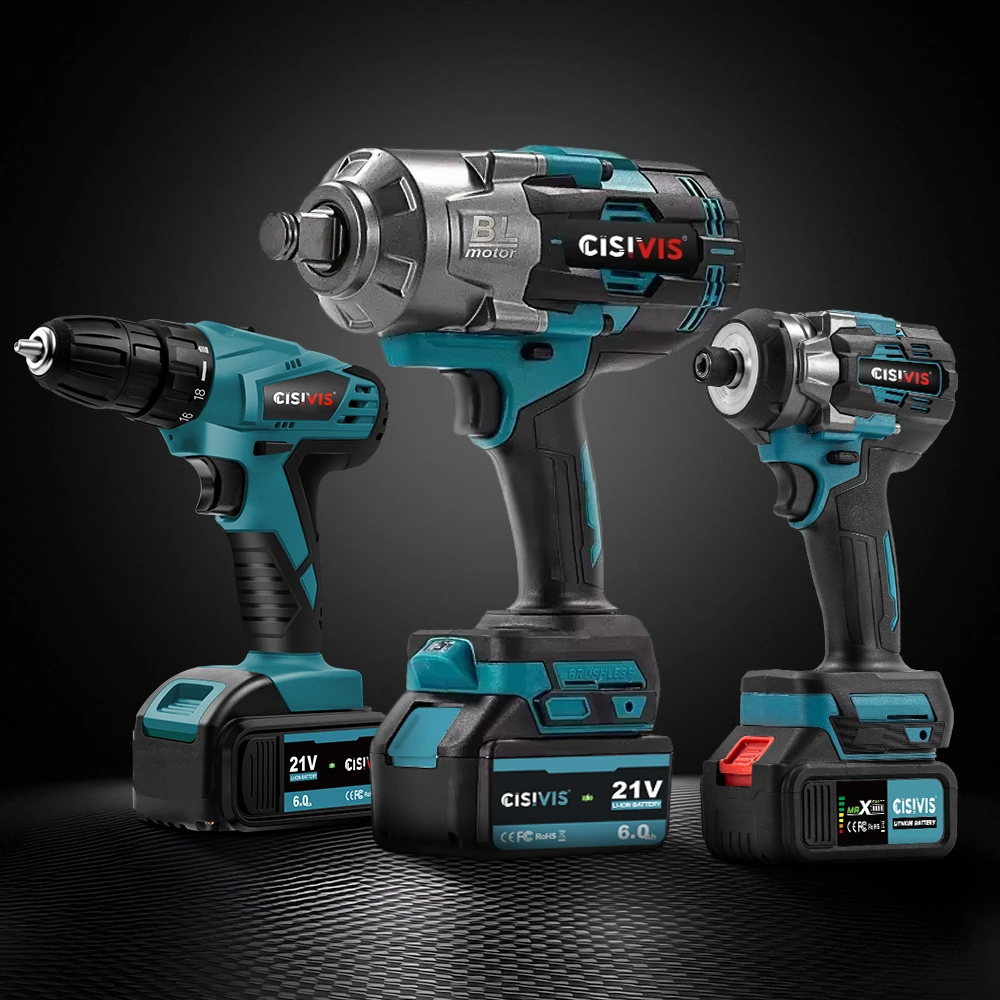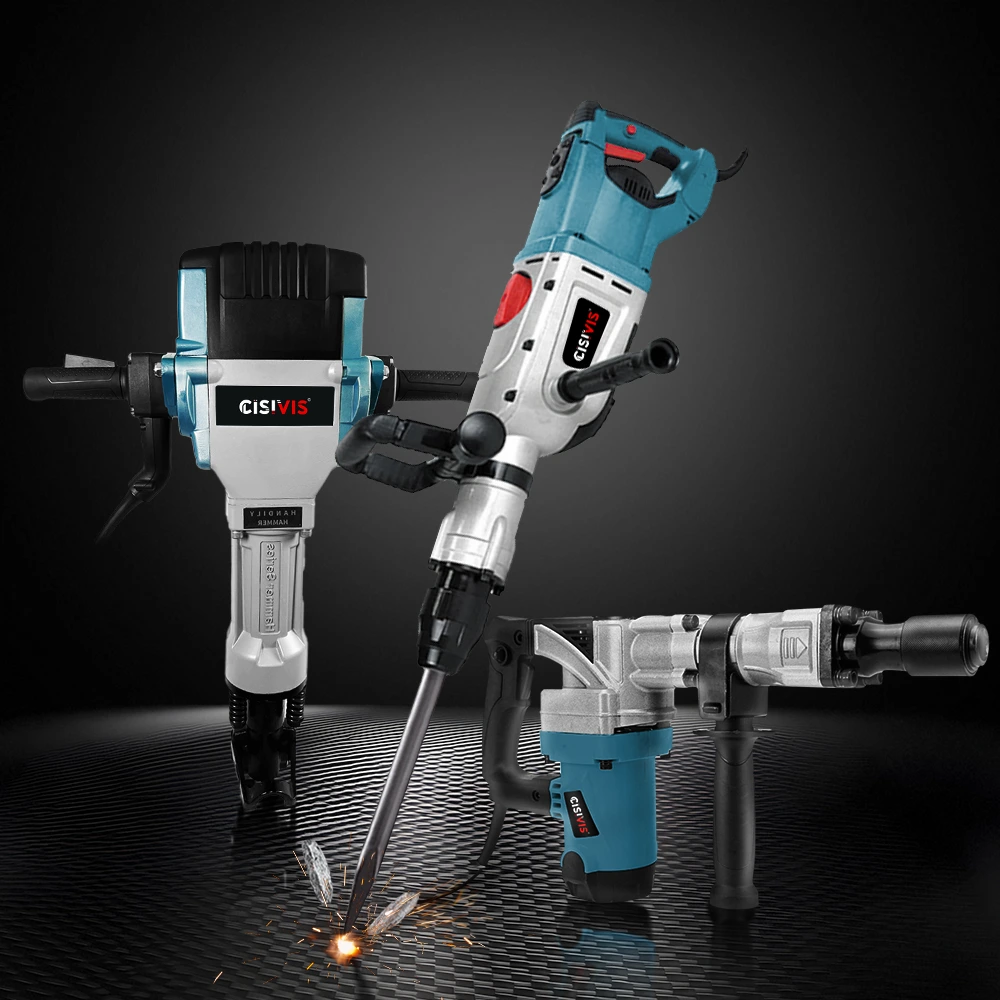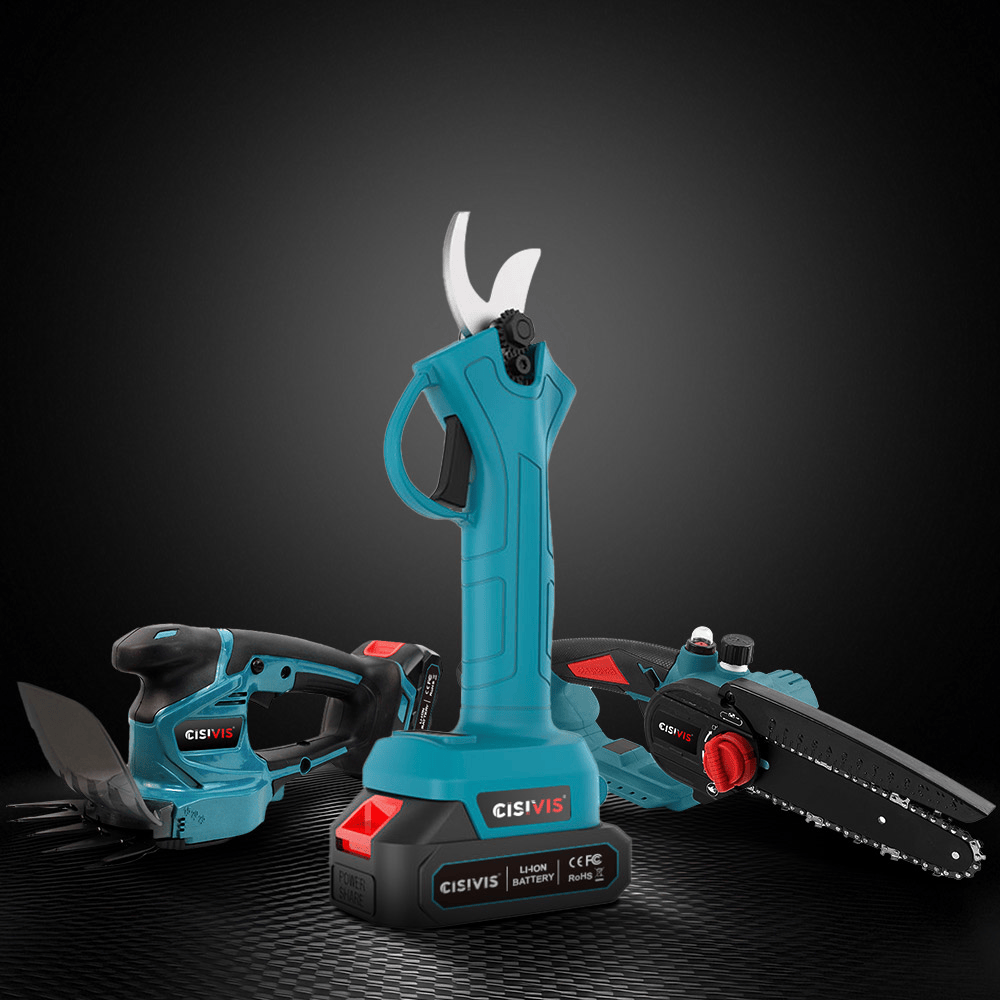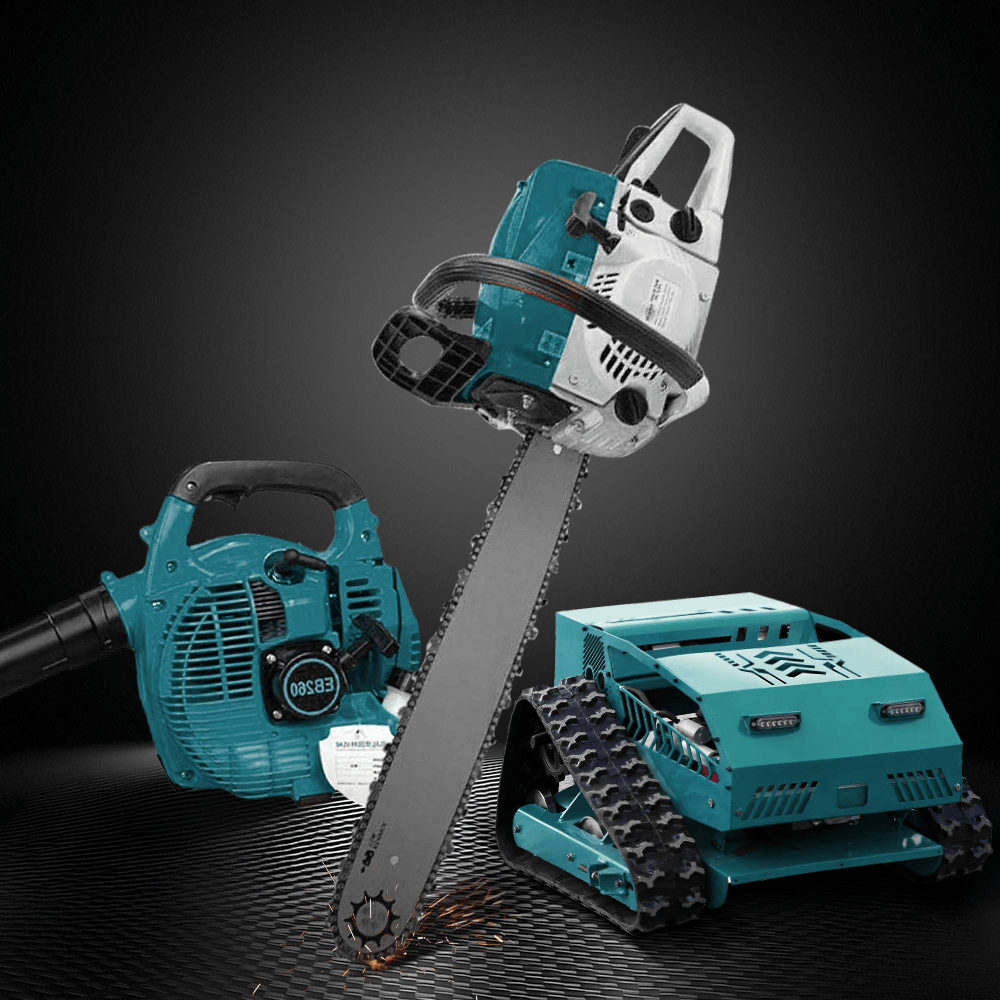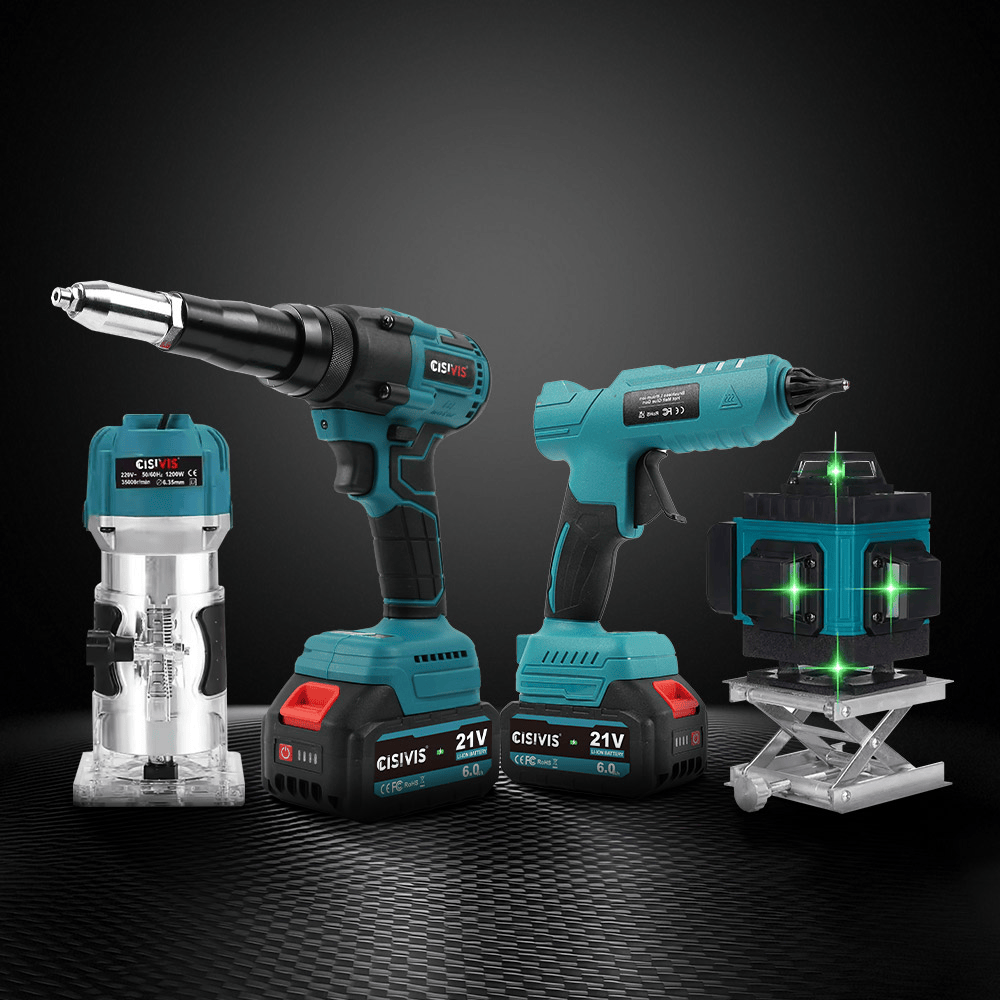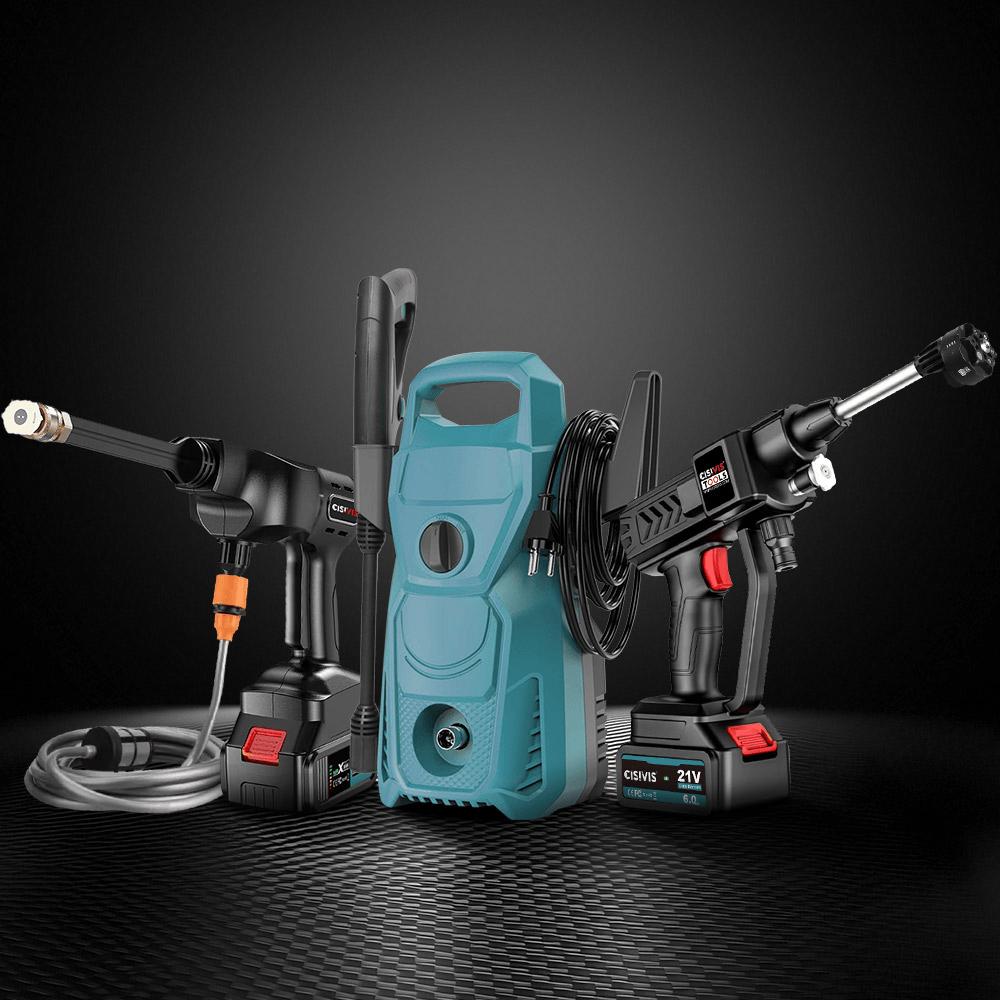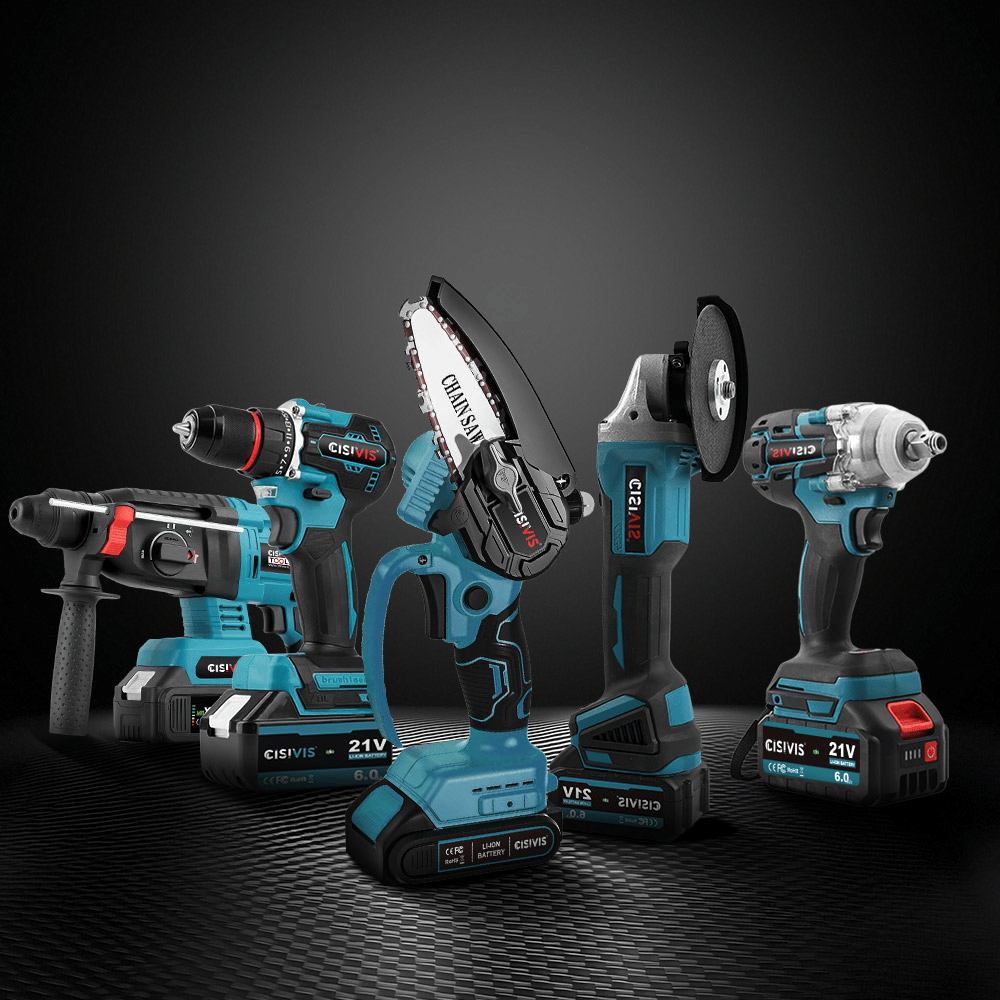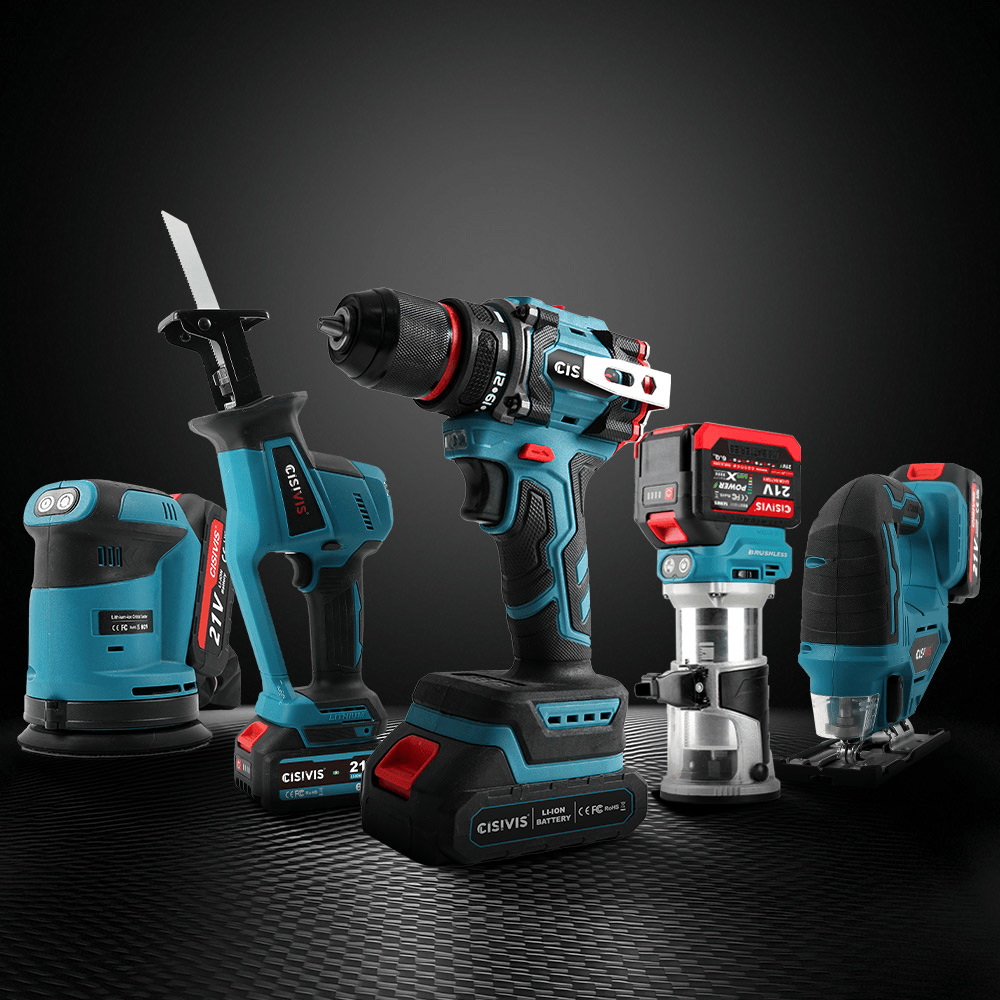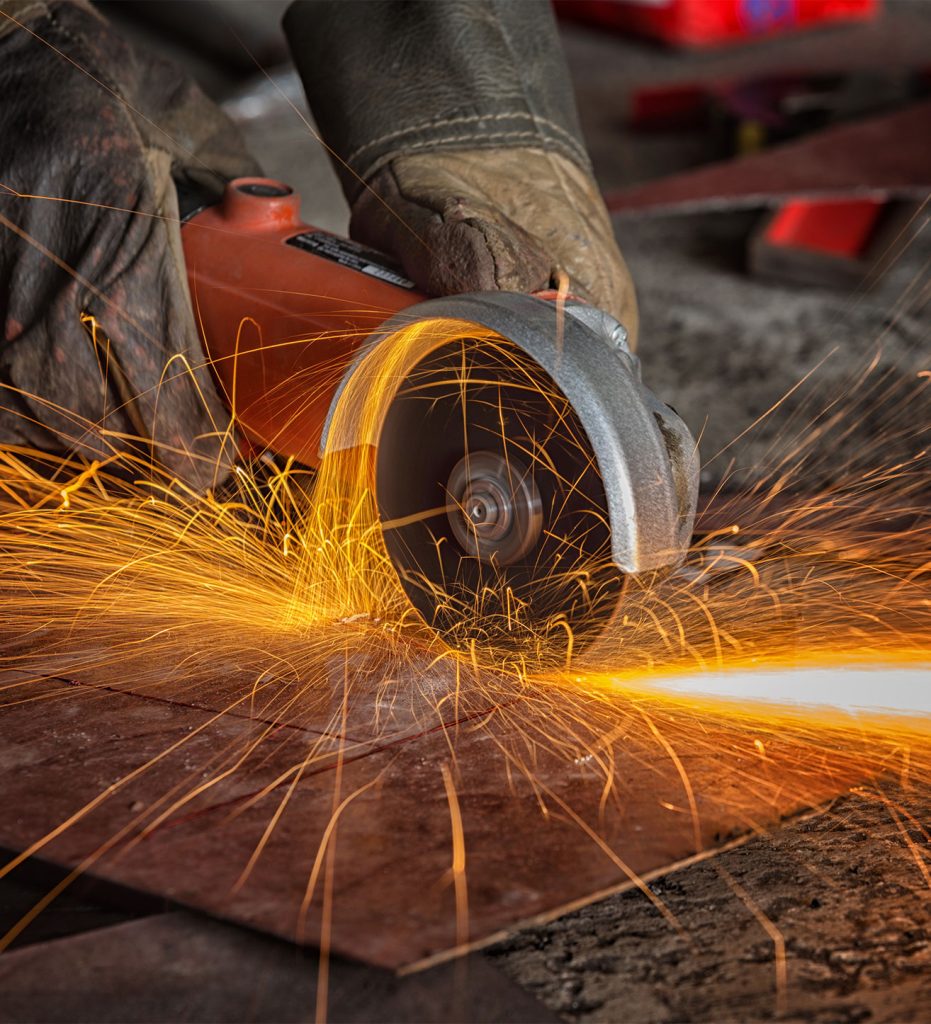- Cordless Drill
- Cordless Impact Drill
- Cordless Impact Wrench
- Cordless Ratchet Wrench
- Cordless Impact Driver
- Cordless Screwdriver
- Cordless Hammer Drill
- Cordless Angle Grinder
- Cordless Circular Saw
- Cordless JigSaw
- Reciprocating Saw
- Laser Level
- Cordless Polishers
- Cordless Pressure Washer
- Cordless Heat Gun
- Cordless Spray Gun
- Lithium Battery & Charger
- Power Tool Set
Hydraulic Chain Saw Guide: From Core Principles to Efficient Wood Processing
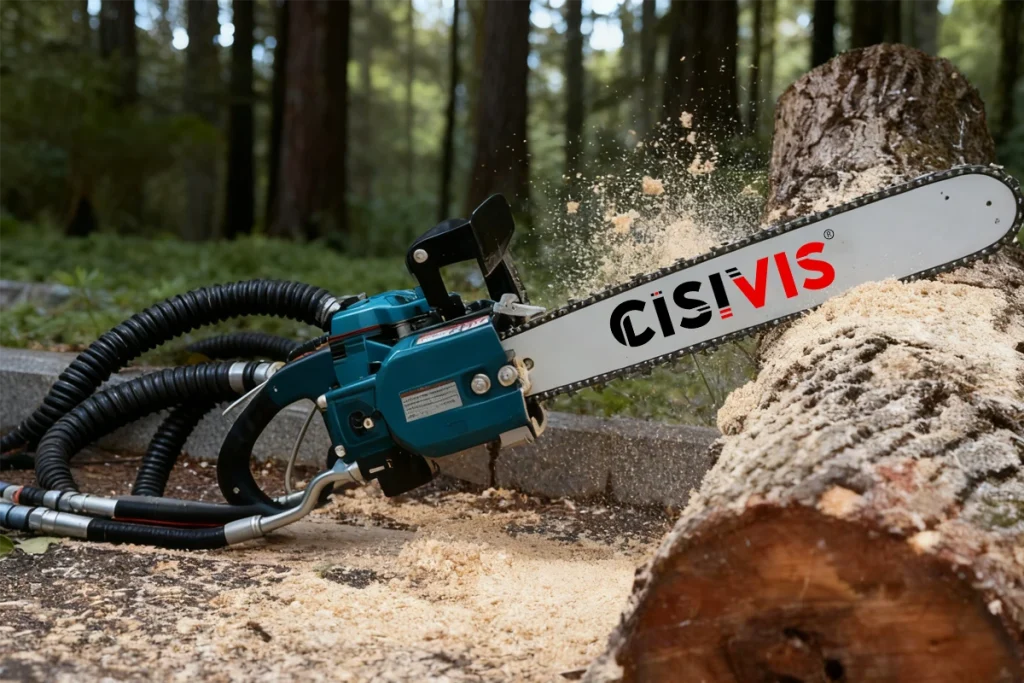
What Is a Hydraulic Chain Saw
A hydraulic chain saw is a cutting tool powered by a hydraulic system. Unlike electric or gas-powered chain saws, it operates through a high-pressure oil flow that drives a hydraulic motor, which in turn rotates the chain at high speed. This system ensures stable output and high torque, allowing the saw to perform efficiently even in extreme environments such as underwater construction, mining, or heavy-duty demolition.
Common applications of hydraulic chain saws include:
- Wood processing and logging: Ideal for cutting hardwood or large-diameter timber;
- Concrete and stone cutting: Suitable for demolition and construction sites;
- Underwater and rescue operations: Safe and efficient in environments where electricity poses risks.
Key Advantages of Hydraulic Chain Saws
Compared with electric or gasoline saws, hydraulic chain saws offer multiple advantages:
- Higher cutting efficiency: Consistent power output without voltage fluctuations;
- Stronger torque and durability: Handles dense materials like hardwood or reinforced concrete;
- Lower maintenance cost: No spark plugs or air filters to replace;
- Enhanced safety: Safe to use in wet or flammable environments;
- Reduced noise and vibration: Improves operator comfort during long hours of work.
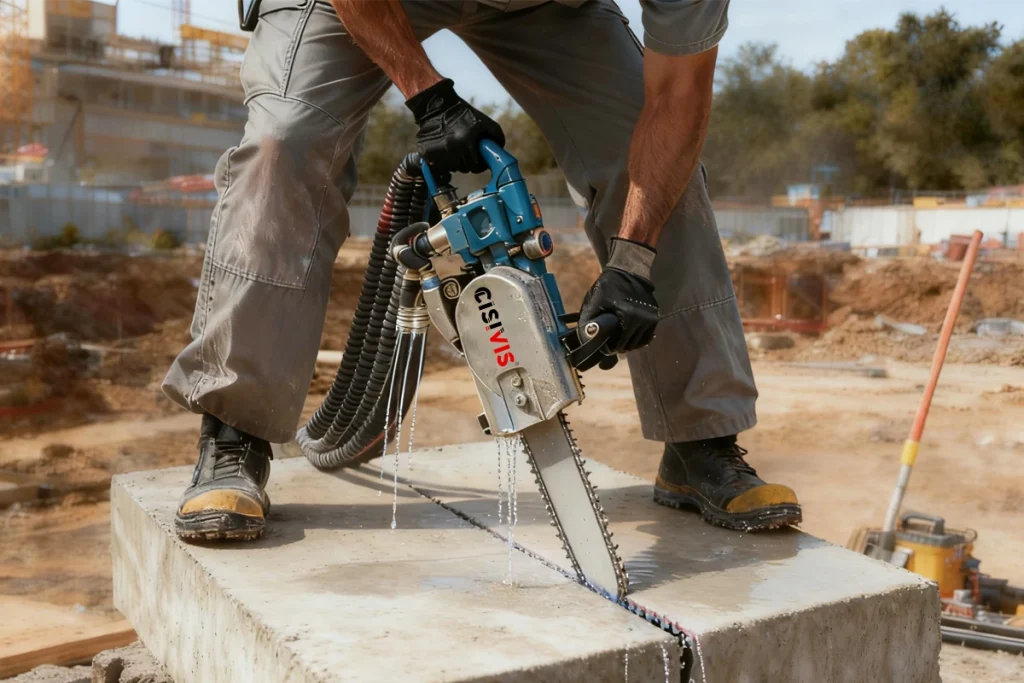
Quick Comparison
| Features | Hydraulic Chainsaw | Hydraulic Cut-off Saw | Hydraulic Ring Saw |
|---|---|---|---|
| Cutting Material | Wood, concrete, rebar | Concrete, metal | Concrete, masonry |
| Cutting Depth | Medium to deep | Medium | Deep |
| Ease of Operation | High | Moderate | Low (requires experience) |
| Power Output | Stable and strong | High-speed rotation | Continuous deep cutting |
| Typical Application | Woodwork, forestry, rescue | Construction | Precision concrete cutting |
How to Choose a Hydraulic Chain Saw for Wood Processor
Selecting the right hydraulic chain saw for wood processing requires more than just power considerations. You should evaluate the tool based on usage, motor type, flow rate, bar and chain design, ergonomics, and system compatibility. Here are CISIVIS expert recommendations:
1. Match Flow and Power to Your Workload
For heavy-duty wood processing, choose a saw with a flow rate of 25–40 L/min, providing stable torque for continuous cutting. For large-diameter or dense hardwoods, higher flow and pressure can significantly improve cutting speed and efficiency.
2. Choose the Right Hydraulic Chain Saw Motor
The hydraulic motor is the heart of the chain saw. A high-quality motor ensures smooth torque delivery and energy efficiency. CISIVIS recommends high-torque, low-speed hydraulic motors, which improve cutting precision and extend the tool’s service life.
3. Select the Appropriate Bar and Chain Combination
Match your chain and bar length (commonly 18–24 inches) to the type of wood:
- Hardwood: Use wear-resistant alloy chains;
- Softwood or wet wood: Use high-speed cutting chains;
- Mixed-use: Opt for replaceable guide bars for flexibility.
4. Focus on Safety and Ergonomics
For professional users, safety and comfort are crucial. Look for features like anti-vibration systems, automatic chain lubrication, and quick-stop brakes. CISIVIS hydraulic chain saws are designed with balanced handles and non-slip grips, reducing fatigue during long operations.
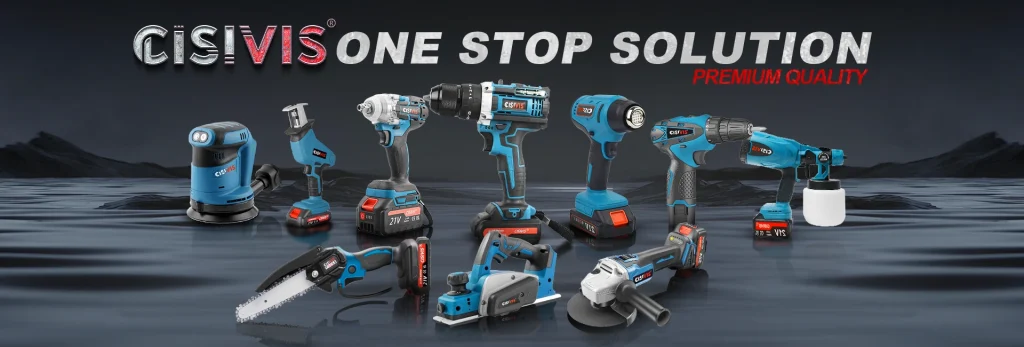
5. Check System Compatibility and Maintenance
Ensure your hydraulic chain saw matches your existing hydraulic setup (flow rate, pressure, and connector type). Prefer models with replaceable seals and easy-to-clean oil systems to minimize downtime and extend operational life.
6. Evaluate Total Ownership Cost
Consider not only the initial purchase price but also energy consumption, spare parts availability, and maintenance intervals. A reliable brand ensures better long-term value and lower overall operating costs.
Conclusion
Hydraulic chain saws deliver powerful torque, consistent performance, and exceptional versatility, making them ideal tools for both industrial and wood processing applications. By understanding their working principles, benefits, and application differences, you can confidently choose the right tool to maximize productivity and safety.

WHY YOU CAN TRUST CISIVIS
CISIVIS has over 6 years of experience in power tool R&D, delivering high-quality solutions worldwide. Our 3,000 m² factory, equipped with advanced machinery and strict quality control, ensures precision, efficiency, and a daily output of over 10,000 units for reliable bulk order fulfillment.
Our product portfolio includes a full range of power tools, including cordless drills, impact drills, impact wrenches, angle grinders, circular saws, jigsaws, chainsaws, lawn mowers, car washers, laser levels, cordless trimmers, polishers, paint sprayers, heat guns, and more. We also offer OEM/ODM services to meet diverse market needs.

